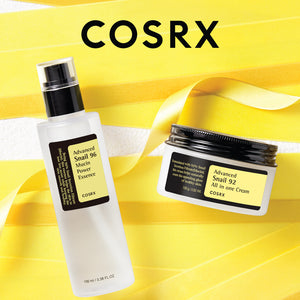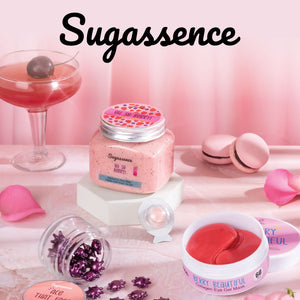
Are they all the same? Unveiling Vitamin C and its type
With a slight nip in the air and days getting shorter, the season of warm cups of coffee and snacking on nuts is here. The onset of winter also changes our weekend rituals a tad bit. Sitting outside and soaking in the warmth of the winter sun is how we officially welcome the arrival of winter. Another important aspect of this season is eating oranges and various seasonal berries while basking in the honey sun. Why? Do you ask? Because these winter fruits contain Vitamin C which is one of the most essential vitamins that our body needs especially during this season to tackle skin problems like dryness which are common guests. Vitamin C is excellent for the skin, as it helps in reducing dryness and wrinkles, keeping the skin moist.
Vitamin C is a naturally occurring antioxidant that is an important component of the skin, but as simple as it seems, intake of vitamin C through just gobbling seasonal fruits is not enough for your body. To fully immerse in the “true Vitamin C experience”, it is as important to use it topically as it is to consume it. Your skin cannot maximize the benefits of Vitamin C without a good layer of this potent ingredient.
Why Vitamin C is required in skincare
Adding Vitamin C to the skin is an excellent strategy to boost collagen production while also improving the collagen fibers' capacity to contract and have natural resilience. When you apply vitamin C to your skin, the collagen structure strengthens and you obtain firmer skin. The use of vitamin C to the skin can significantly diminish fine lines and wrinkles. It has also been shown to treat sun damage and brighten hyperpigmented areas. It is important in keeping the skin from drying out, as well as in collagen formation and skin renewal. It is present in all skin layers but is more abundant in the epidermis than in the dermis. The use of Vitamin C-containing skin care on a regular basis has been found to boost the formation of barrier lipids on the skin's outermost layer. According to research, when exposed to UV light, the level of vitamin C in the skin declines by nearly two-thirds.
Benefits of Vitamin C
- Safe for most skin types
- Provides hydration
- Brightens your skin
- Reduces redness
- Reduces hyperpigmentation
- Reduces the appearance of under-eye circles
- Promotes collagen production
With that, let's look into the various forms that Vitamin C comes in.
1. Ascorbic acid
This is on top of its game as it is the most well-known and well-researched type of vitamin C in the skincare field.This type of vitamin C offers remarkable anti-aging advantages for typical skin types when correctly prepared at a pH of less than 4 and is very effective at penetrating the skin barrier. To avoid irritation, sensitive skin types should look for a pH of 5-7, which is closer to the skin's natural pH. When exposed to light and air, ascorbic acid breaks down (oxidizes), rendering vitamin C inactive and potentially harmful to your skin. Adding vitamin E and ferulic acid, as well as utilizing an opaque and airtight container, can help stabilize AA.
2. Magnesium Ascorbyl Phosphate
Another vitamin C derivative used in skin care, magnesium ascorbyl phosphate, has been found to have a moisturizing impact on the skin. It reduces transepidermal water loss, allowing your skin to better retain moisture. Magnesium Ascorbyl Phosphate is a water-soluble vitamin C derivative that has swiftly gained popularity in skincare.It is also less irritant and more stable than other types of Vitamin C. Most notably, Magnesium Ascorbyl Phosphate has the potential for improved skin collagen production at considerably lower doses. For people with sensitive skin or who want to prevent an exfoliating impact, magnesium ascorbyl phosphate is a better choice.
3. Sodium Ascorbyl Phosphate
This less powerful, yet nevertheless useful, kind of vitamin C for skin is suitable for all skin types. When sodium ascorbyl phosphate is applied to the skin, it transforms into ascorbic acid. Though this technique reduces its activity, it is less irritating and good for users with sensitive skin. Several studies have shown that SAP has an antibacterial impact and may be a viable treatment and prevention option for acne. Another advantage of Sodium Ascorbyl Phosphate is that it acts less unpredictably when exposed to light, air, and even water, than ascorbic acid. You should still look and store it in dark amber or opaque bottles, but you can be assured that it won't lose its effectiveness as quickly as other actives might.
4. Calcium Ascorbate
Calcium ascorbate, also known as Ester C, is a mineral salt of ascorbic acid that plays an important role in collagen formation, tissue and wound repair, and antioxidant defense. It also protects the skin from free radicals, stimulates collagen formation, lowers the appearance of fine wrinkles, and removes dark spots. Calcium Ascorbate is also excellent for skin hydration, and the calcium end of the component offers numerous benefits for bones, cartilage, and tissue. This type of vitamin C works best at a neutral pH, which means it won't irritate your skin.
5. Ethyl Ascorbic Acid
Ethyl Ascorbic Acid, also known as 3-O-ethyl-L-ascorbic acid, is a highly stable form of vitamin C that is soluble in oil and water. It is extensively utilized as an anti-aging and antioxidant component in topical preparations. This derivative is primarily appropriate for people with normal skin. It gives great results as Ethyl Ascorbic Acid absorbs quickly into the skin. It transforms into pure L-ascorbic acid at a rate of more than 80%, making it the most efficient form of vitamin C for skin lightening and collagen formation. This fantastic vitamin C derivative is extensively utilized in hyperpigmentation treatment products and all of these factors combine to make Ethyl Ascorbic Acid a true powerhouse.





Leave a comment